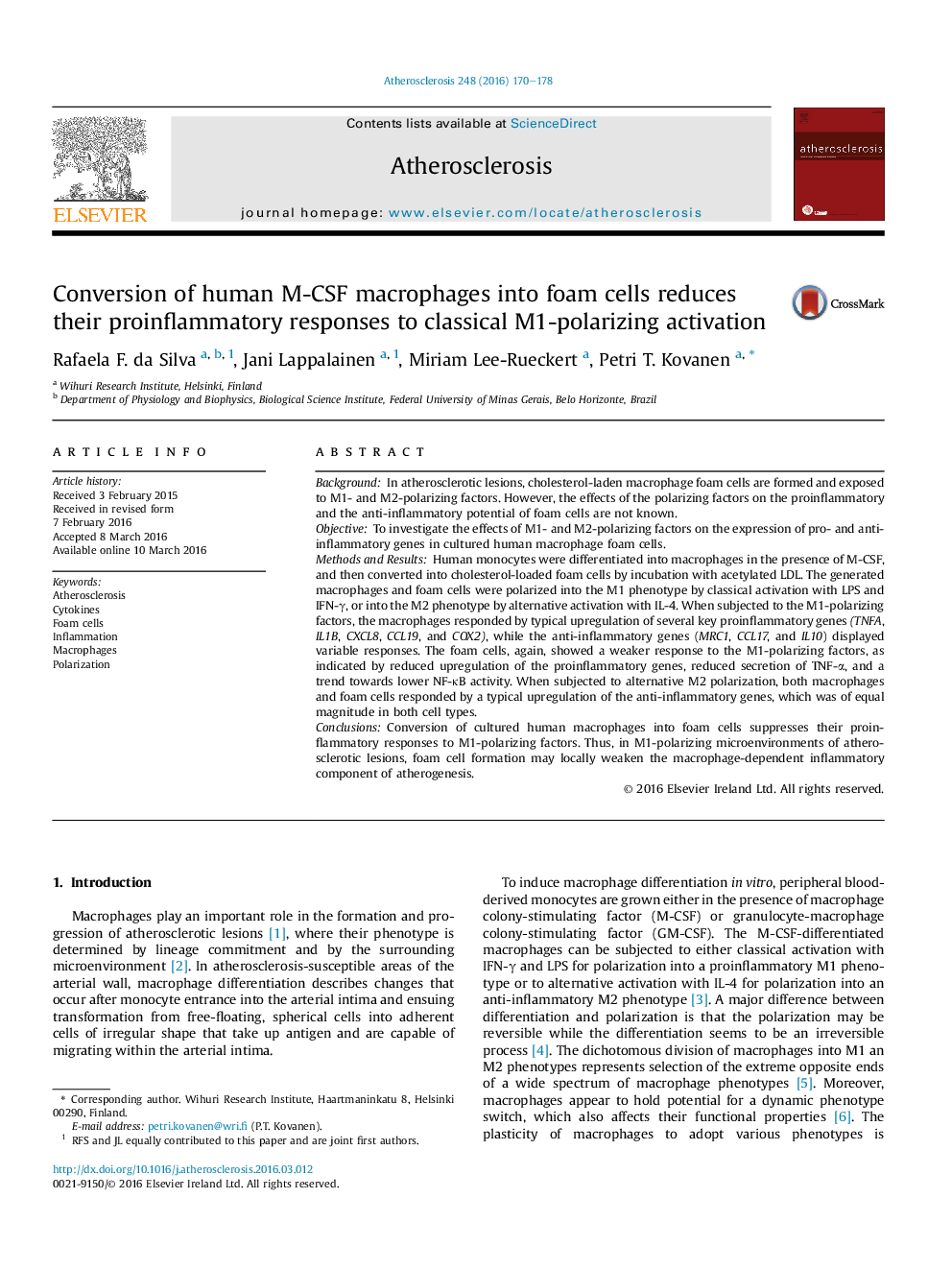| کد مقاله | کد نشریه | سال انتشار | مقاله انگلیسی | نسخه تمام متن |
|---|---|---|---|---|
| 5943260 | 1574717 | 2016 | 9 صفحه PDF | دانلود رایگان |

- Effect of cholesterol loading on macrophage polarization was studied in culture.
- Foam cell conversion did not affect anti-inflammatory responses to M2 polarization.
- Foam cell conversion suppressed proinflammatory responses to M1 polarization.
- Foam cell formation may weaken macrophage-dependent inflammation in atherogenesis.
BackgroundIn atherosclerotic lesions, cholesterol-laden macrophage foam cells are formed and exposed to M1- and M2-polarizing factors. However, the effects of the polarizing factors on the proinflammatory and the anti-inflammatory potential of foam cells are not known.ObjectiveTo investigate the effects of M1- and M2-polarizing factors on the expression of pro- and anti-inflammatory genes in cultured human macrophage foam cells.Methods and ResultsHuman monocytes were differentiated into macrophages in the presence of M-CSF, and then converted into cholesterol-loaded foam cells by incubation with acetylated LDL. The generated macrophages and foam cells were polarized into the M1 phenotype by classical activation with LPS and IFN-γ, or into the M2 phenotype by alternative activation with IL-4. When subjected to the M1-polarizing factors, the macrophages responded by typical upregulation of several key proinflammatory genes (TNFA, IL1B, CXCL8, CCL19, and COX2), while the anti-inflammatory genes (MRC1, CCL17, and IL10) displayed variable responses. The foam cells, again, showed a weaker response to the M1-polarizing factors, as indicated by reduced upregulation of the proinflammatory genes, reduced secretion of TNF-α, and a trend towards lower NF-κB activity. When subjected to alternative M2 polarization, both macrophages and foam cells responded by a typical upregulation of the anti-inflammatory genes, which was of equal magnitude in both cell types.ConclusionsConversion of cultured human macrophages into foam cells suppresses their proinflammatory responses to M1-polarizing factors. Thus, in M1-polarizing microenvironments of atherosclerotic lesions, foam cell formation may locally weaken the macrophage-dependent inflammatory component of atherogenesis.
Journal: Atherosclerosis - Volume 248, May 2016, Pages 170-178